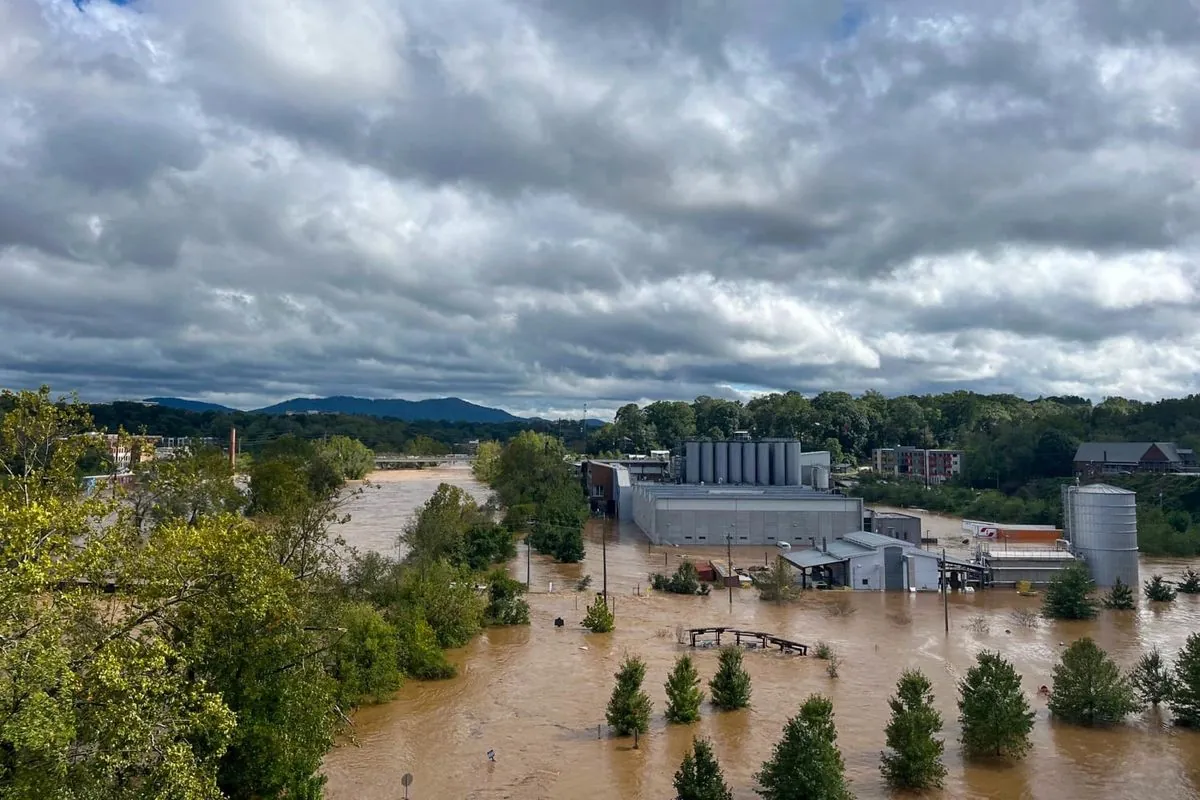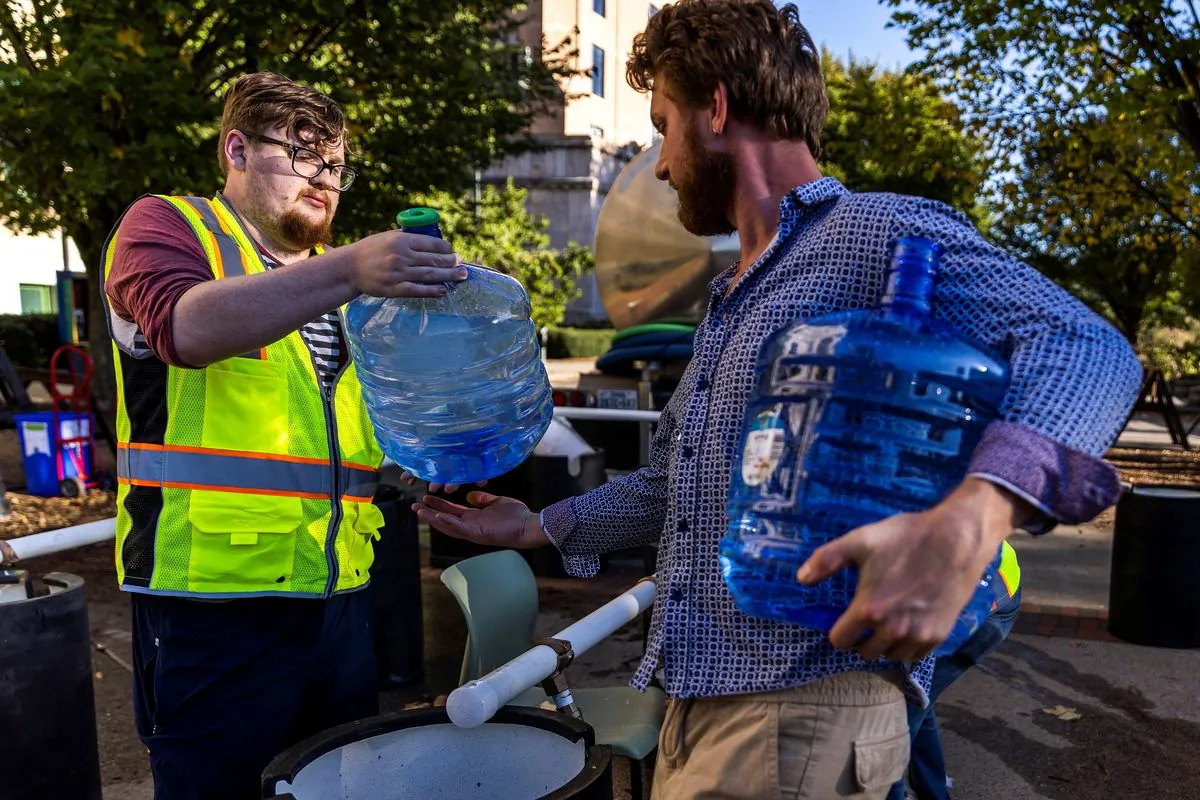Asheville Grapples with Water Crisis in Hurricane Helene's Wake
Asheville faces severe water shortages after Hurricane Helene devastates infrastructure. Residents struggle with basic needs as officials work on repairs, highlighting the vulnerability of mountain communities to extreme weather events.

In the aftermath of Hurricane Helene, Asheville, a picturesque city nestled in the Blue Ridge Mountains of western North Carolina, is grappling with a severe water crisis. The storm, which struck in late September 2024, has left residents struggling to access one of life's most basic necessities.
The hurricane's impact on Asheville's water infrastructure has been devastating. Floodwaters tore through the city's water system, destroying crucial components and leaving officials estimating that repairs could take weeks. This situation has forced residents to seek alternative sources of water, with many flocking to downtown areas where tanker trucks have been deployed to distribute this now-precious resource.

The scale of the disaster is significant. According to the Environmental Protection Agency, as of early October 2024, approximately 136,000 people in the Southeast were being served by nonoperational water providers, while over 1.8 million were under boil water advisories. This widespread impact on water utilities across such a large inland area has been described by federal officials as potentially "unprecedented."
Asheville's unique geography, characterized by steep, narrow valleys in the Blue Ridge Mountains, is complicating repair efforts. The challenging terrain, which typically attracts fall tourists, is now hindering the staging of resources and access to damaged infrastructure.
"The challenges of the geography are just fewer roads, fewer access points, fewer areas of flat ground to stage resources"
The water crisis is not just an inconvenience but a growing public health concern. Drew Reisinger, the elected Buncombe County register of deeds, expressed worry about residents in apartments who lack easy access to alternative water sources for basic sanitation needs.
While federal officials have shipped millions of gallons of water to affected areas, the situation remains dire. Power has been restored to about 62% of homes and businesses, but in 10 counties, approximately half of the cell sites are still down.
The disaster has highlighted the vulnerability of infrastructure to extreme weather events. Craig Colten, a former professor focused on resilience to extreme weather, hopes this event will prompt increased investment in infrastructure capable of withstanding destructive storms.
As Asheville works to recover, the city's resilience is being tested. Known for its vibrant arts scene, historic architecture, and as the home of the Biltmore Estate, Asheville now faces the challenge of rebuilding while maintaining the charm that has made it a popular tourist destination and retirement spot.
The situation serves as a stark reminder of the importance of water infrastructure and the need for communities to prepare for increasingly frequent extreme weather events. As climate change continues to impact weather patterns, cities like Asheville may need to reassess their preparedness and invest in more resilient systems to protect their residents and preserve their unique character.


































